
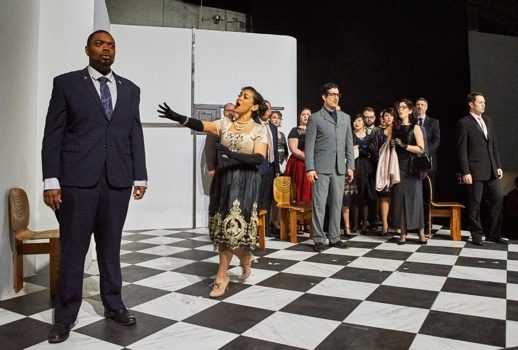
By making the voice the central concern, the company highlighted opera’s essential selling points: its vast capabilities to engage, entertain, and thrill. With an intimate setting, and a young cast that reveled in a go-for-broke style, this production also breathed new life into an obscure piece, making an excellent argument for its place in the repertory.
Key to this success, Bernard Holcomb’s Otello was a vocally searing presence. Despite a few flubs during some unremarkable passages in the music, his ringing tenor soared with an electric intensity. And beyond his sheer vocal power, his characterization of the Moor of Venice moved flawlessly through registers of aggression and tenderness.
As Desdemona, Cecilia Lopez brought a full-throated sound and a professional polish to her work. The soprano is a formidable actress, and she imbued her character’s outward presence with an organic subtext. Her Desdemona moved beyond the gestures of the reductive victim, developing and expressing a complex subjectivity, complete with unexpected contradictions.
Blake Friedman was an exceptionally diabolical Iago. Underplaying the outright malevolence of the role, his face remained placid, almost serene, throughout the evening. His manner was unctuous; his costume was ill fitting. His Iago haunted the stage, accentuating a queasy, almost sociopathic component to the character’s psyche. But most importantly, his pliant tenor sailed easily through the role’s difficult music.
Another notable performance came from Thor Arbjornsson as Rodrigo, a more substantial role in Rossini’s opera than in Shakespeare’s play. His tenor could be, at times, laser-like in its focus, burning through the orchestra and chorus. However, his middle voice tended to lack the vitality and muscularity of the top.
The supporting roles were equally full-throttled and satisfying, if not always well managed. Of special note, however, was Isaiah Musik-Ayala as the paternal Elmiro. His rich bass-baritone and his imposing physicality highlighted the overarching themes of patriarchy within the plot. And John Ramseyer had a hypnotically lyrical moment as the Gondolier.
The orchestra, conducted by Sean Kelly, supported the singers well enough, while still allowing a bit of wildness to creep in and keep the proceedings spontaneous. Maybe it’s an inherent characteristic of the score, but the evening maintained an unruly, bombastic vitality, like the unnerving momentum of a runway train—exciting and dangerous, unhinged in the best way possible.
The performer’s vocal pyrotechnics brought chutzpah and gravitas to a rather dour production, generally working against the perfunctory direction by John de los Santos. Set pieces were often laboriously constructed, but for reasons that did little to deepen the significance and drama of the text. There was, on the whole, a shortsighted approach to the production’s visual elements. For example, the costumes by Matsy Stinson called to mind the fashionable decadence of a Fellini film, but without much warrant from the text.
It was nice, though, to once again see LoftOpera do what it has come to do best—present opera in an unpretentious mode, providing an alternative to the sometimes stuffy, inaccessible grandeur of Lincoln Center. Beyond the company’s exciting artistic choices, Much of LoftOpera’s significance lies with its understanding of demographics and marketing. Where the Metropolitan Opera can be institutionally cumbersome and aloof, LoftOpera is swift, intimate, and sexy.
Moreover, it was a pleasure to encounter Rossini’s radical interpretation of the source material. While some might argue that such ostentatious coloratura does little to deepen the plot of so tragic a drama, I found Rossini’s composition to be a wonderfully expressive exploration of the tumultuous emotions attending love and jealousy.
It was announced from the stage that the last time Rossini’s Otello was performed in New York City was in 1969. In light of the work’s artistic merit, I found it hard to believe. This long absence alone might be enough to recommend the opera to NYC audiences. However, with such a vigorous and exciting performance of the score, there is more to praise in LoftOpera’s production than the rarity of the work itself.
Photo: Robert Altman














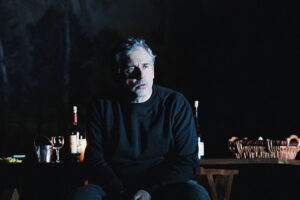
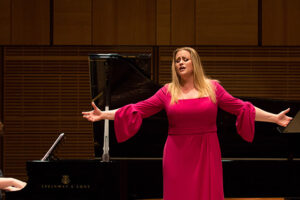
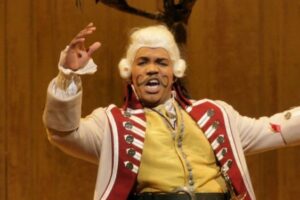
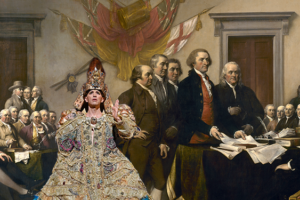





Comments